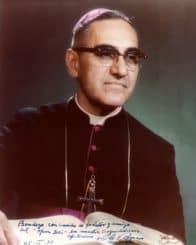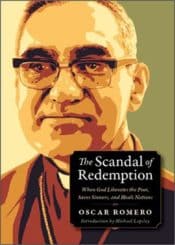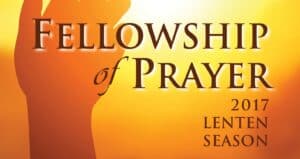
Oscar Romero spent just three years as Archbishop of San Salvador, but by the time he was murdered in 1980 he had become a shepherd to all the people of El Salvador, and the outspoken advocate of its oppressed peasants. In those three years, he built an inspiring and challenging legacy for all those who seek to follow Christ today. His deep faith in God and his love for and trust in the church as a people committed to Christ still rings through his homilies. These weekly sermons preserve the record of atrocities committed against his people by the ruling junta during the beginning of the Civil War in El Salvador; more importantly, they record Romero’s response to the violence in his country.
Over and over, Romero challenged those in power to care for their countrymen; he encouraged the campesinos to pray, to counter hatred with love; he pleaded with the people to live more truly by the vision of the New Testament; and he reminded his entire audience of how Jesus came to earth in poverty, enduring the pain and humiliation of the cross before the triumph of his resurrection. Because Christ knows all the suffering on earth, Romero says, we can believe in and work for his kingdom on earth.
Radio Sermon, January 14, 1979:
That is what the church wants: to disturb people’s consciences and to provoke a crisis in their lives. A church that does not provoke crisis, a gospel that does not disturb, a word of God that does not rankle, a word of God that does not touch the concrete sin of the society in which it is being proclaimed—what kind of gospel is that?
Just nice, pious considerations that bother nobody—that’s the way many people would like our preaching to be. Those preachers who avoid every thorny subject so as not to bother anyone or cause conflict and difficulty shed no light on the reality in which they live.
Radio Sermon, February 18, 1979
The redemption planned by God is reaching all people without any exception. It is reaching even those who feel that their sins are unforgivable. Who knows if my words are reaching the person whose hands are bloody with Father Grande’s murder or the one who shot Father Navarro? Who knows if I’m being heard by those who have killed and tortured and done so much evil? Listen, there in your criminal hideouts! Perhaps you are already repentant. You too are called to forgiveness! Whenever I have cried out against violence, I have always added something about repentance for your sins so that you become children of God. Paul preached to the Romans, a pagan people among whom crimes and injustices abounded, but he told them, “this redemption in Christ is summoning you, but it summons you in Christ, in Christ brought by the Virgin.”
A church that does not provoke crisis, a gospel that does not disturb…what kind of gospel is that?
This redemption is a redemption from sin, sisters and brothers, for that is what the angel told Saint Joseph, “You are to name him Jesus because he will forgive the sins of the world” (Matt. 1:21). That is the starting point of Christian liberation. When we struggle now for human rights, for freedom, for dignity; when we feel that the church’s ministry means showing concern for those who are hungry, those who have no school, or those who suffer exclusion, we are not departing from God’s promise. He comes to free us from sin, and the church knows that the consequences of sin are all these injustices and crimes. That is why the church knows that she is saving the world when she undertakes to speak of such things.
Radio Sermon, April 15, 1979:
There can be no freedom as long as there is sin in the heart. What’s the use of changing structures? What’s the use of violence and armed force if the motivation is hatred and the purpose is to buttress those in power or else to overthrow them and then create new tyrannies? What we seek in Christ is true freedom, the freedom that transforms the heart, the freedom the risen Christ announces to us today, “Seek what is above” (Colossians 3:1). Don’t view earthly freedom and the oppression of this unjust system in El Salvador just by looking down from the rooftops. Look on high! at doesn’t mean accepting the situation, because Christians also know how to struggle. Indeed, they know that their struggle is more forceful and valiant when it is inspired by this Christ who knew how to do more than turn the other cheek and let himself be nailed to a cross. Even submitting to crucifixion, he has redeemed the world and sung the definitive hymn of victory, the victory that cannot be used for other ends but benefits those who, like Christ, are seeking the true liberation of human beings.
There can be no freedom as long as there is sin in the heart.
On March 24, 1980, at six in the evening, Archbishop Romero celebrated a memorial Mass for Sara Meardi de Pinto, who had died the previous year. She was the mother of a friend, Jorge Pinto, publisher and editor of one of the few newspapers besides Romero’s own Orientación to report on the government’s crimes accurately. That newspaper’s offices had been bombed three weeks before.
Doña Sarita dedicated all her cultural formation and graciousness to the service of a cause that is so necessary today: the true liberation of our people. This afternoon, dear sisters and brothers, I believe we should not only pray for the eternal rest of our dear Sarita but should above all embrace this message that every Christian today must heartily proclaim.
Many people don’t understand the message. They think that Christianity should not get involved in these things, but quite the opposite is true. You just heard the Gospel of Christ: we must not love our lives so much that we avoid taking the risks in life that history calls for. Those who seek to shun danger will lose their lives, whereas those who for love of Christ dedicate themselves to the service of others will live. They are like that grain of wheat that dies, at least in appearance. If the grain does not die, it remains alone (John 12:24–25). If it yields a crop, it is because it dies, allowing itself to be immolated in the earth; it is by being dismantled that it produces the crop.
This is the hope that inspires us as Christians. We know that every effort to improve society, especially when justice and sin are so widespread, is an effort that God blesses, that God wants, that God requires of us…For we have the assurance that we will never fail in all the work that we do on earth if we infuse it with Christian hope. We will find it purified in that kingdom where our merit will be according to what we have done on earth.
I ask all of you, dear brothers and sisters, to view these things that are happening in our historical moment with a spirit of hope, generosity, and sacrifice. And let us do what we can. We can all do something and be more understanding. This holy woman whom we are remembering today perhaps could not do anything directly, but she encouraged those who were doing something, she understood their struggle, and she above all prayed. Even after death she speaks to us a message from eternity, telling us that our work is worthwhile. If we illuminate with Christian hope our intense longings for justice and peace and all that is good, then we can be sure that no one dies forever. If we have imbued our work with a sense of great faith, love of God, and hope for humanity, then all our endeavors will lead to the splendid crown that is the sure reward for the work of sowing truth, justice, love, and goodness on earth. Our work does not remain here; it is gathered and purified by the Spirit of God and returned to us as a reward.
If we illuminate with Christian hope our intense longings for justice and peace and all that is good, then we can be sure that no one dies forever.
This holy Mass of thanksgiving, then, is just such an act of faith. By Christian faith we know that at this moment the host of wheat becomes the body of the Lord who offered himself for the redemption of the world, and that the wine in this chalice is transformed into the blood that was the price of salvation. May this body that was immolated and this flesh that was sacrificed for humankind also nourish us so that we can give our bodies and our blood to suffering and to pain, as Christ did, not for our own sake but to bring justice and peace to our people. Let us therefore join closely together in faith and hope at this moment of prayer for Doña Sarita and ourselves.
In that moment of prayer, a shot sounded in the chapel. Archbishop Romero fell to the floor at the foot of the cross behind the altar. He died within minutes.
 Taken from The Scandal of Redemption: When God Liberates the Poor, Saves Sinners, and Heals Nations by Oscar Romero, Introduction by Michael Lapsley; Plough Books. Used with permission.
Taken from The Scandal of Redemption: When God Liberates the Poor, Saves Sinners, and Heals Nations by Oscar Romero, Introduction by Michael Lapsley; Plough Books. Used with permission.


